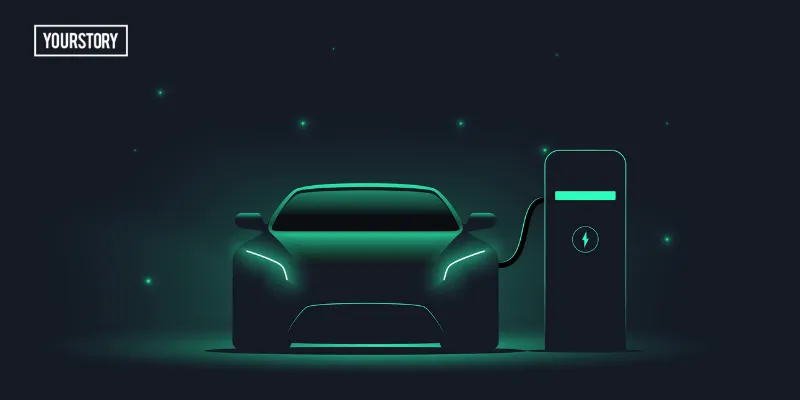Exploring the growth and viability of EV battery recycling
EV battery recycling can pave the way for a sustainable EV industry future, contributing to environmental conservation and economic growth.
A Frost & Sullivan report titled "An Overview of the Indian Electric Vehicle Market: Trends and Future Outlook forecasts sales of over 123,000 battery electric vehicles in India by the end of 2024, marking a significant 47.9% year-on-year increase from 2023. With the increasing adoption of EVs, the demand for efficient and sustainable battery solutions has skyrocketed.
The global EV battery recycling market was valued at around $3 billion in 2023 and is estimated to register a CAGR of over 27% during the forecast period from 2024 to 2030.
The surge in electric vehicle adoption worldwide has led to an increasing volume of spent batteries, creating a pressing need for sustainable disposal solutions and closed-loop recycling.
As reported by the International Energy Agency (IEA), despite a substantial 180% increase in production since 2017, the demand for lithium surpassed its supply in 2022.
Environmental considerations and regulatory efforts that advocate for responsible waste handling are amplifying the need for effective recycling methods. Moreover, increased awareness of the limited availability of crucial battery materials like lithium and cobalt is spurring the advancement of recycling technologies aimed at recovering and reutilizing these valuable resources.

India is also witnessing increased adoption and awareness of EVs, and while that is a cause for celebration, we also need to chart out the next course of action. Many electric vehicles rely on lithium-ion batteries due to their high energy density and ability to enhance vehicle performance.
However, India faces challenges due to the absence of domestic reserves for crucial raw materials such as lithium, cobalt, and nickel, which exposes the country to risks in the battery supply chain.
Currently, India meets most of its lithium-ion battery demands through imports, leaving its electric vehicle sector susceptible to geopolitical disruptions. To achieve self-sufficiency in batteries, the industry requires unrestricted access to essential minerals.
While much emphasis is placed on sourcing raw materials from mines, another increasingly important focus is on reclaiming materials already contained within batteries in use and recycling them.
Research indicates these materials can potentially have an indefinite lifespan if extracted, separated into battery-grade components, and recycled effectively. Repurposing used batteries can assist the industry in managing geopolitical uncertainties, ensuring material stability, and reducing the environmental impact of waste.
The economic viability of EV battery recycling hinges on several factors such as the cost of recycling processes, the value of recovered materials, and the market demand for these materials. As the EV market expands, so does the potential for a lucrative battery recycling industry.
Battery recycling involves complex processes, including collection, transportation, dismantling, and material recovery. Advances in technology are making these processes more efficient and cost-effective. For instance, newer recycling methods like hydrometallurgical and direct recycling techniques are emerging as alternatives to traditional pyrometallurgical methods, which are energy-intensive and costly.

The value of recovered materials plays a crucial role in the economic viability of recycling. Lithium-ion batteries contain valuable metals such as cobalt, nickel, and lithium, which have substantial market value. According to a report by McKinsey, the recycling industry alone could create a $6 billion profit pool by 2040, by which time revenue could exceed $40 billion—more than a three-fold increase from 2030 values. This projection highlights the financial potential of a well-established recycling infrastructure.
The growth potential of the EV battery recycling industry is significant, driven by regulatory support, technological advancements, and increasing environmental awareness. Manufacturers are striving to meet the growing demand for lithium-ion batteries, and this is affecting the supply of raw materials as well. Recycled materials offer a sustainable solution to this challenge. The demand for recycled battery materials is expected to rise, creating a robust market that supports the economic viability of recycling operations.
However, the EV battery recycling industry faces several challenges as it is a very new sector. Efficient collection and transportation of spent batteries are critical to the recycling process. Establishing a robust collection network that ensures batteries are properly disposed of and transported to recycling facilities is also essential. Besides this, collaboration between manufacturers, retailers, and recycling companies is needed to streamline this process.
The lack of standardisation in battery designs also poses a challenge to recycling efforts. In addition to this, handling and recycling EV batteries involve safety risks due to their high energy content and the presence of hazardous materials. Ensuring the safety of workers and investing in advanced safety technologies is crucial for the industry to progress.
The growth and economic viability of EV battery recycling are integral to the sustainability of the electric vehicle industry. By addressing the challenges and leveraging the opportunities, the EV battery recycling industry can pave the way for a sustainable future, contributing to environmental conservation and economic growth.
(Mr. Samrath Singh Kochar is the Founder and CEO of Trontek.)
Edited by Jyoti Narayan







